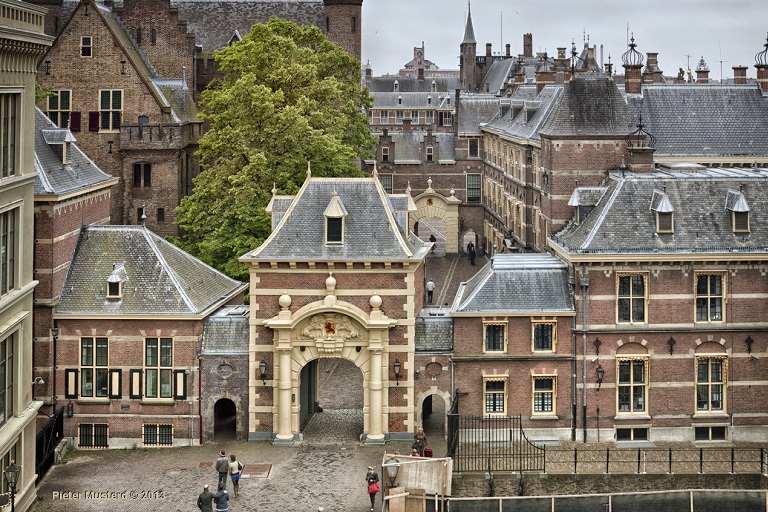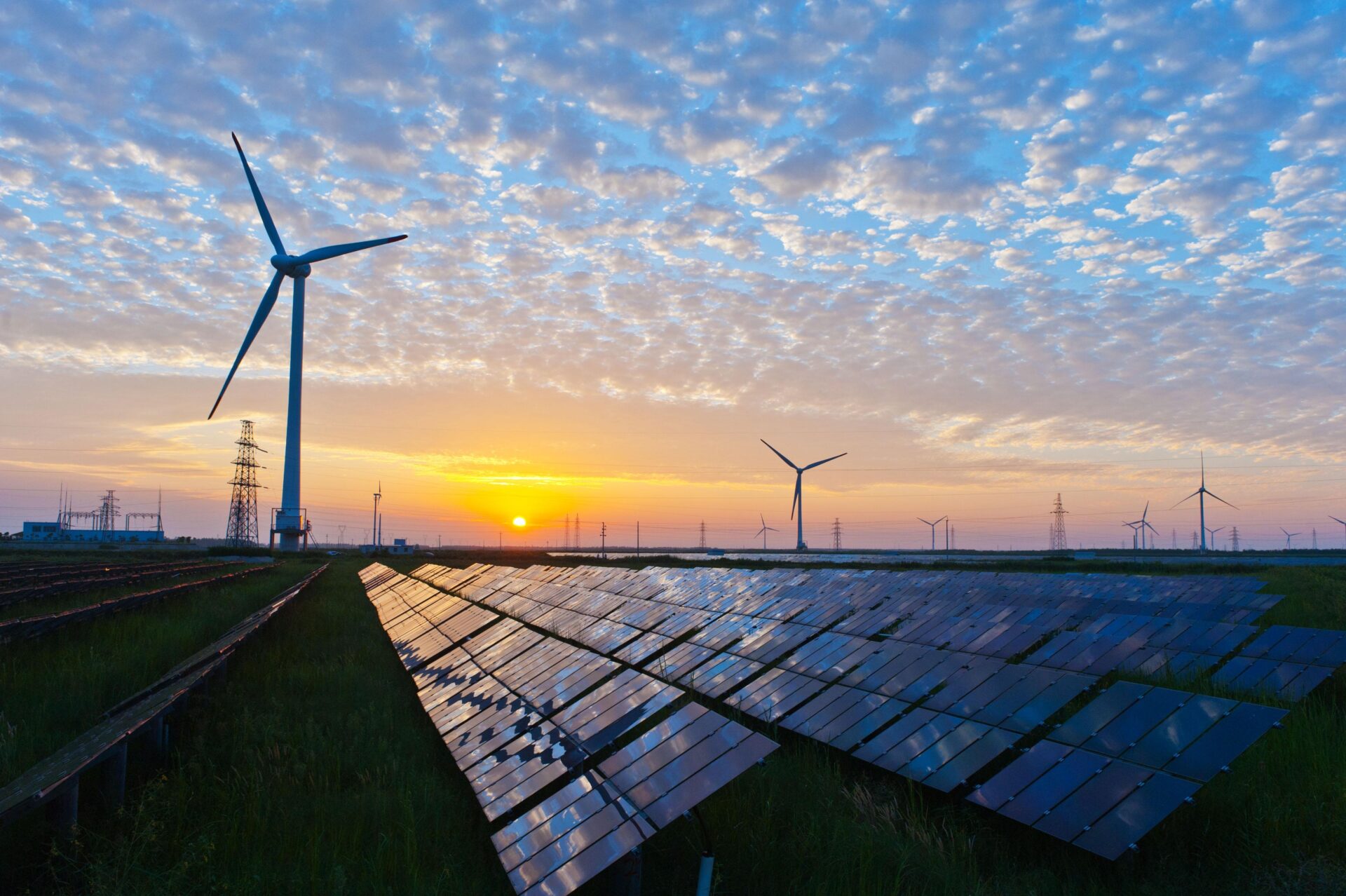A good time to see exactly what the parties stand for. Publieke Zaken analyzed the election programs and the CPB's calculations and mapped out how the parties position themselves within our main themes: mobility, built environment, industry, agriculture and circular economy.
Our interns Tischa and Thijn made an overview of the most important insights. Curious what these elections mean for your files? In My Publieke Zaken you will find in-depth analyses per theme and party. Would you like to discuss the possible consequences or opportunities for your organization? Then contact your advisor at Publieke Zaken.
Industry
CCS (Carbon, Capture and Storage).
The discussion on CO2 storage (CCS) is seen by many parties as an inevitable part of the energy transition. D66 sees CCS as an interim step for companies on their way to sustainability, but links that commitment to clear exit dates for fossil technologies. From more conservative quarters, SGP and NSC see the technology primarily as temporarily useful: as an affordable, practical solution as long as real alternatives are not yet fully available, but not a structural replacement for the phase-out of fossil fuels. More pragmatic in tone is the BBB, which emphasizes the development of transport and infrastructure for CO2, without explicitly speaking for or against storage itself. On the other hand, PVV, SP and PvdD reject CCS precisely as a means of perpetuating pollution or creating unnecessary risks. For VVD, CDA and Volt, on the other hand, CO2 storage is a crucial tool for industry and power plants. They call for priority projects and a strategic approach to effectively deploy the technology.
CO2 tax
The National CO2 Tax is a topic that is much talked about in the industry sector. In fact, it is still unclear what is going to happen with it, and the positions of the political parties are very different here. On one side are parties such as PVV, VVD, CDA, JA21 and BBB, who want to abolish or reject the levy. They stress the importance of a strong industry, fear additional burdens on companies and want to prevent production shifting abroad. On the other hand, GroenLinks-PvdA, SP, PvdD, DENK and Volt see the tax as an important instrument to accelerate sustainability. According to them, a firm CO2 price stimulates companies to invest in clean technologies and structurally reduce their emissions. In the calculations of the CPB it has become clear that the D66 will channel the revenues of the CO2 levy for industry directly back to the companies that have paid the levy to support sustainability. This will no longer go through the climate fund. The Christian Union, according to the calculations, reduces the rate of the CO2 levy for industry (excluding waste incinerators) by 20% through 2030 and reduces the number of dispensation rights by 4 Mton, this changes the flow back to the Climate Fund. A different sound comes from FvD, which wants to completely abandon CO2 reduction as a policy goal and emphasize affordability and security of supply. According to the calculations, NSC abolishes the CO2 tax for industry and the CO2 tax for waste incinerators is maintained.
Hydrogen
Hydrogen is playing an increasingly important role in the energy transition, but not all parties have a concrete position on the subject. For example, PVV, JA21, DENK and FvD do not come up with specific passages on hydrogen in their election programs. GroenLinks-PvdA, SP and PvdD emphasize green hydrogen, especially for industry and heavy transport sectors. In doing so, they see an active role of the public sector and a robust infrastructure as necessary to enable the application of hydrogen. On the other hand, VVD, CDA, D66, ChristenUnie, BBB, Volt, SGP and NSC want to actively stimulate hydrogen production and infrastructure. They are committed to an integrated application within the energy mix, industry and transport, with Volt also advocating linkage with European networks and cooperation.
Built Environment
Sun and wind
Most parties see a role for wind energy, but their preferences vary widely. Volt wants to bet heavily on offshore wind, with national noise standards and a requirement for solar panels on large roofs. On the other side are BBB, JA21 and SGP, who are critical of wind turbines on land because of the impact on health and landscape, and prefer to give more space to nuclear energy. CDA, Christian Union and NSC support expansion of offshore wind, but emphasize the importance of nature, fisheries, and a fair distribution of risks between government and market. It is striking that VVD does see offshore wind as part of the energy mix, but is mainly pragmatic: the party insists on cost control, security of supply and room for nuclear energy. This differs from GroenLinks-PvdA and D66, which see wind as the engine of energy transition, in combination with solar, hydrogen and energy storage. SP and PvdD put the emphasis on solar panels on roofs, wind on sea and locally supported projects, where nature and health must come first. At the other extreme of the spectrum, PVV and FvD want to halt the energy transition and allow no new wind or solar farms.
Grid congestion
In the debate about the future energy mix, accents differ between parties. For example, the SP and PvdD emphasize the importance of strong public direction, with firm investments in the electricity grid for solar, wind and charging infrastructure. From the progressive corner, with GroenLinks-PvdA, D66 and Volt, the main call is for speed: permits must be issued more quickly and innovation in storage and smart grids is given priority. On the more pragmatic side, VVD, CDA and NSC especially want to speed up the construction and reinforcement of the grid. They see opportunities in flexible contracts and local energy hubs, provided the costs are shared fairly across generations. Christian Democrats and Christians also point to the importance of good governance: ChristenUnie and SGP argue for more capital for grid managers, lower tariffs for projects that relieve the grid, and better spatial planning. At the same time, there are parties that actually distance themselves from the current course. PVV wants to put the energy transition on pause until grid congestion is resolved, while FvD advocates nationalization of the energy sector and smarter use of infrastructure to reduce pressure on the grid.
Mobility
Electric transportation
Electric transport stood out in the election programs for the mobility theme. PVV would rather not see an obligation for electric driving or a ban on fuel cars while, GroenLinks-PvdA wants all newly sold vehicles to be electric from 2030. D66 has no hard end date, but wants to strongly encourage electric driving and discourage the use of fuel cars as much as possible through subsidies, tax incentives and charging infrastructure. The VVD and CDA also support the switch to electric driving, as long as it remains affordable; they also want to reform motor vehicle tax (MRB) by taxing on vehicle surface area rather than weight. The Christian Union, Volt and SGP also advocate stimulating emission-free driving, but see a weight correction in the MRB as more equitable. The SP and the PvdD push for a public and affordable charging network and a focus on zero-emission transport; the PvdD wants all newly sold vans and trucks to be electric by 2030. Against this, the JA21 warns of high costs and overloading the electricity grid.
Bio-fuels
The CDA and Christian Union encourage hydrogen for transport and shipping and want to invest in e-corridors and green production. In contrast, the SP and BBB want only real, clean biofuels and encourage cleaner alternatives without penalizing motorists. In between are the D66, Volt and NSC who seek more sustainable aviation fuels (SAF), biofuels and innovation in electric and hydrogen flying. JA21 and SGP, on the other hand, are pushing for innovation and cleaner fuels, lower taxes and incentives for synthetic fuels.
Circular Economy
Plastic
The issue of the circular economy and plastic use receives varying attention from different parties. GroenLinks-PvdA, SP and PvdD emphasize reducing plastic waste and advocate strict measures: mandatory use of recycled materials and an end to the import of foreign waste. On the other hand, VVD, CDA, D66, ChristenUnie, Volt, SGP and NSC take an approach that puts innovation and cooperation in the chain at the center. Their focus is on improving recycling processes, encouraging reuse and developing circular product designs.
Recycling
In the field of circular economy, some parties focus heavily on producer responsibility and reusability of products. GroenLinks-PvdA, SP and PvdD advocate that producers should be obliged to use recycled materials and design products in such a way that they are easily reusable. In contrast, PVV, JA21, BBB, DENK and FvD are not expressing an opinion on recycling for the time being. Other parties instead emphasize active policies for resource recovery, recycling and repair. CDA, D66, ChristenUnie, Volt, SGP and NSC are specifically committed to this, with a view to a more sustainable use of raw materials in the Netherlands. Notable is the recent addition of VVD to its election program, in which the party investigates how Dutch waste processing plants can contribute to the production of heat and electricity for residents in a sustainable and profitable way. This includes looking at the possible role of import taxes on foreign waste, as part of a broader strategy for circular use of raw materials.
Agriculture
Target
On target management in agricultural policy, opinions are divided between parties. NSC and ChristenUnie argue for a strict application of KPIs from 2026, such as urea, nitrogen soil surplus and nitrate, where simplicity and measurability are key. Another group, including CDA, GroenLinks-PvdA and D66, wants to combine target steering with a system change that clarifies standards, enables an area-specific approach and gives farmers room to decide for themselves which measures to take. In addition, VVD, SP and SGP show willingness to explore goal steering, emphasizing the freedom of farmers to make their own choices, as long as the set standards are met. The BBB explicitly emphasizes the expertise of the farmers themselves. According to the party program, farmers, gardeners, growers and fishermen have been working with the soil, animals, environment and nature for centuries and are the professionals. Policy must therefore shift from means to ends, with the farmer actually at the helm. Some parties have not spoken out about goal steering. JA21, DENK, FvD, PvdD and Volt leave this subject open for the time being.
Spatial Planning
Opinions differ on the use of agricultural land, but many parties want clarity, sustainability and social value to be central. GroenLinks-PvdA, SP, ChristenUnie and Volt argue for active government control of land, with long-term, sustainable leases and support for young farmers. Land should be available for sustainable, circular or nature-friendly agriculture, and land speculation is countered. CDA, D66 and NSC focus on area-based planning and integrated approach, combining agriculture, nature, housing and financing. Plan income tax, regional land banks and guiding Nota Ruimte policy ensure that public investments deliver social value and land is used efficiently. JA21 and BBB emphasize strengthening agriculture as an economic and social foundation, with protection of existing farms, realistic regulations and preservation of peatland and grassland areas. For them, food security and cost-efficient agriculture are central, without forced measures. Opposed to this is the PvdD, which wants to convert some farmland to nature, housing and local organic food production, with fewer livestock. In addition, the SGP emphasizes the protection of young farmers through limiting short-term leases and encouraging long-term, stable forms of tenure. In short, the common thread is that land policy should serve both social, ecological and economic goals, with long-term leases, transparent area planning and room for farmers to make sustainable choices.

